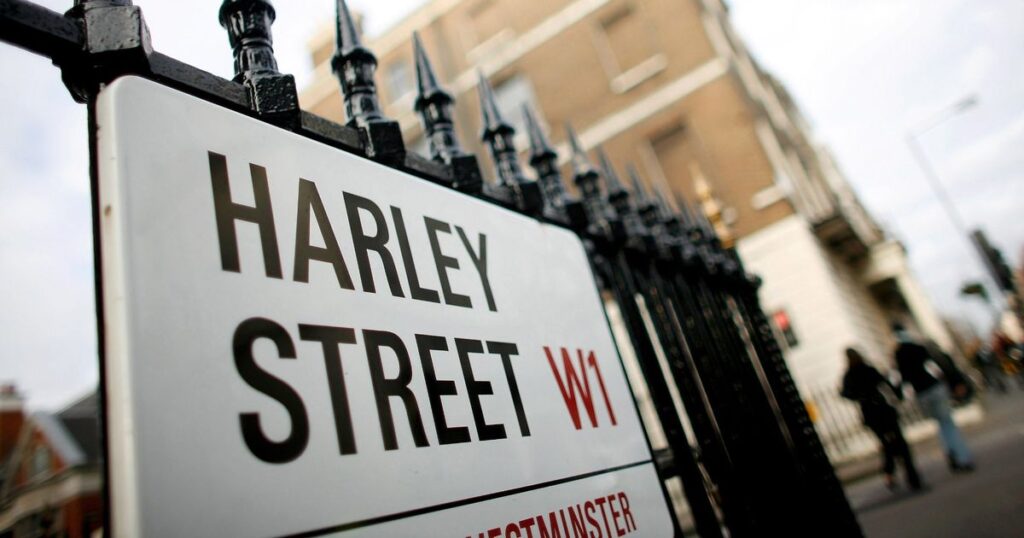Howard de Walden Estates Holdings, known for its prestigious Marylebone Village and Harley Street properties, is navigating significant financial challenges.
The company reported pre-tax losses over £254m for the year ending March 2024, influenced by a £331m loss tied to asset revaluation.
Financial Performance and Challenges
Marylebone Village and Harley Street’s owner, Howard de Walden Estates Holdings, recorded a significant increase in pre-tax losses for the financial year ending 31 March 2024. The losses more than doubled, reaching £254.2m, compared to £102.3m in the previous year. This sharp rise was largely attributed to a substantial £331.8m loss from the revaluation of investment properties.
The devaluation reflected an 8.2% decline in property values on a like-for-like basis, impacting the company’s overall financial health. Despite these challenges, the firm’s rental income saw a modest growth, rising by three per cent to £147.8m. The increase in rental income indicates a stable demand for their properties, highlighting the company’s resilience in a volatile market.
Strategic Developments
In response to the financial challenges, Howard de Walden Estates has embarked on several strategic initiatives aimed at repositioning and optimising its asset portfolio. The company successfully secured new lettings worth £35.4m and signed 746 new leases over the year, achieving a 4.2% increase. These moves signify the company’s proactive approach to adapting to market conditions.
Sir William Proby, chairman, stated, “During a period of consolidation, there have been exciting initiatives over the last 12 months. We are increasing investment to reposition our buildings towards uses with the highest potential for growth in income and capital.” This highlights the firm’s commitment to long-term growth despite immediate setbacks.
Financial Stability and Future Prospects
Although facing increased pre-tax losses, Howard de Walden Estates asserts its strong financial standing. The company reported £204.3m in cash and undrawn facilities, underscoring its robust position to weather current economic challenges.
The rising net debt, from £552.3m to £604.1m, also weighs on the company’s balance sheet. Yet, the management remains confident in capitalising on future opportunities. Sir William Proby expressed optimism, suggesting that the property cycle may have reached its nadir, paving the way for the estate to prosper. His outlook builds faith in the company’s strategies.
Market Influence and Community Engagement
The strategic focus extends beyond financial metrics, emphasising community engagement and social responsibility. Howard de Walden supports local groups and events, enhancing its reputation as a community-focused enterprise.
The company is keen on upgrading its properties to maximise growth potential. Initiatives include launching a flexible office brand, Elmtree, and refurbishing buildings to attract health technology innovators. This diversification strategy is designed to address changing market needs and align with societal expectations.
Chief Executive Mark Kildea revealed plans to invest in areas offering substantial growth potential. These efforts signal a forward-thinking approach, ensuring the company remains competitive and relevant.
Sustainability and Long-term Strategy
The sustainability strategy, named “deCarbon,” was introduced with the objective of achieving net zero by 2040. The initiative outlines short-, medium-, and long-term priorities, ensuring alignment with global sustainability standards.
Mark Kildea emphasised the importance of this strategy, stating the company’s dedication to sustainable profits. This forward-looking approach strengthens Howard de Walden’s commitment to a responsible business ethos.
The estate’s sustainability objectives include developments across healthcare, residential, office, retail, leisure, and education sectors. This reflects a comprehensive strategy to boost the estate’s resilience and adaptability in a dynamic market.
The long-term strategy places a premium on high occupancy levels and financial capacity. This ensures the estate’s future growth potential. The diverse property interests, primarily freehold-owned within a 95-acre area of Marylebone, offer a strong foundation for the company’s strategic ambitions.
Leadership and Strategic Objectives
Howard de Walden Estates’ leadership plays an integral role in its strategic direction. Proactive management and a dedicated workforce drive the company towards achieving its objectives.
Chief executive Mark Kildea noted, “We are confident that we are well positioned to meet these challenges, with significant financial capacity, high occupancy levels and a dedicated and motivated workforce in a unique and desirable part of London.” This dedication underpins the company’s strategic vision and operational success.
The executive team’s focus on innovation and strategic development aligns with the estate’s long-standing heritage, fostering a culture of excellence and forward-thinking.
Conclusion
Despite a challenging financial year marked by increased pre-tax losses, the actions taken by Howard de Walden Estates Holdings reflect a robust strategy geared towards future success. The company’s initiatives and financial acumen position it well to capitalise on emerging opportunities, ensuring resilience and growth.
The company’s strategic initiatives and strong financial foundation are geared towards overcoming current challenges.
Howard de Walden Estates is well-positioned to leverage future opportunities, sustaining resilience and growth.

